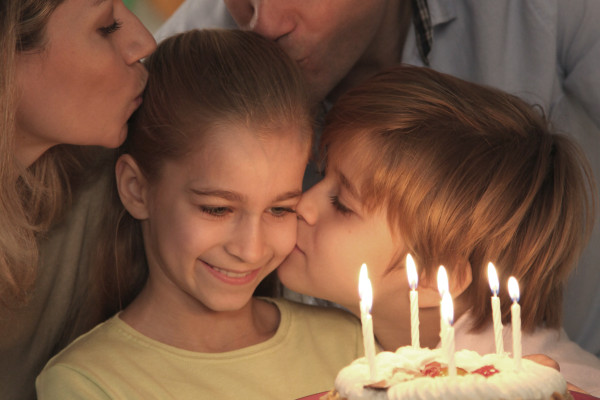Are you interested in learning more about diverse parenting styles? I found The Danish Way(link is external) to be spot on and was fortunate enough to have one of the authors, Jessica Alexander, agree to write a series of guest posts based on Danish paretning styles. This is the first in the series.
Narcissism has become a growing epidemic lately. Some studies claim it has increased two-fold since the 1980-1990s in young people, which is quite alarming. The characteristics of narcissists are such that they focus so much on themselves that they lose sight of caring for other people’s needs. This can wreak havoc on their relationships and general happiness in the long run. Could this epidemic have something to do with the way we are parenting?
We have all met those children who are overloaded with praise and constantly put on pedestals. For a long time, many believed that incessant praise was a key element in encouraging success and achievement in children. We all want our kids to be special but what some haven’t realized is that pedestals are lonely places that separate us rather than connect us. And our ability to connect to others, not stand out and away from them, is what creates the true foundation for well-being.
One of the most effective antidotes to raising a narcissist is teaching empathy. Empathy may seem like a vague subject to teach, but in some countries, like Denmark, empathy is considered just as important as teaching Math and English! Interestingly, Denmark has been voted for over 40 years in a row as one of the happiest countries in the world. Could this be due to their focus on empathy?
Essentially, empathy is the ability to recognize and understand the feelings of others. It’s being able to walk a mile in someone else’s shoes. People used to think babies were born without empathy but that is simply not true. We are all wired for empathy. We just have to learn how to connect the wires to make it work. Parents have a great responsibility because they are the primary example of empathy and have to practice being empathic themselves. What a child experiences in the home will be crucial for their empathy development.
Children from overprotective parents, or helicopter parents as some refer to them, can have their ability to empathize negatively affected. These parents are often afraid to let their children fail or feel the big emotions and do everything to avoid conflicts and meet their child’s slightest wish. They sometimes hide their true reactions to “protect” their children. But this actually hinders the child’s ability to read others emotions and, therefore, lack empathy.
For example, if a child loses or plays poorly in sports, helicopter parents might try to “save them” from the emotions of failure by telling them they actually played great! Perhaps they blame it on someone else or on the conditions of the field rather than let them stay in the emotion. The truth is, feeling upset from defeat is an incredibly important experience for all of us. Not only does it help us to understand ourselves and others but it also helps us find the strength to really try again.
The more we show our children that all emotions are ok to feel, the more stable they will be. Trying to protect children from “negative” feelings and constantly giving empty and hollow praise for insignificant accomplishments is like building a house of cards. What happens when the big bad wolf comes?
Perhaps not surprisingly, children from over protective families are the ones who grow up to be more prone to narcissism, anxietyand depression.
So how can we help facilitate empathy?
- Ask yourself. How empathic are you? Are you judging others or trying to understand them? Remember, your children are mirroring you.
- Help your children learn the language of empathy. Help them to understand others’ feelings rather than judging. “Sophia was angry?” Why do you think she was angry?” “What do you think about what happened?” Not “She shouldn’t have been angry!” This helps your children get used to thinking about others feelings rather than shaming them.
- Read. Studies show that reading to your children markedly increases their empathy levels. And not just reading nice books but reading books that encompass all emotions, including bad and uncomfortable ones. Dealing with reality, even at a level they can handle, is honest and it is proven to significantly improve empathy.
- Get an empathy app. There are many empathy apps now where children can play games in which they have to choose different emotions of faces. This is a fun way to encourage empathy even with technology.
- Let your child play more. Helicopter parents can sometimes intervene at the slightest scuffle to “rescue” their children. But children learn so much from their peers. There are no pedestals or special praise in play. They are learning self-control and how to be with others which is a crucial life lesson. Sometimes it’s learning how to deal with difficult children that can teach the most.
So the next time you find yourself over-praising your child or wanting to save them from a difficult emotion, try to remember that pedestals are lonely and that all emotions are okay to experience. The more children learn about what it means to fail and to feel the big emotions, also for others, the kinder and more empathic they are likely to become. And this, we know, is laying the groundwork for more connectedness and well-being in their future.
Jessica Alexander is the co-author of “(link is external)The Danish Way of Parenting: a guide to raising the happiest kids in the world”(link is external) (link is external)along with Danish psychotherapist Iben Dissing Sandahl. She has been married to a Dane for 14 years, speaks 4 languages, and lives in Rome with her husband and two children.
![]()





